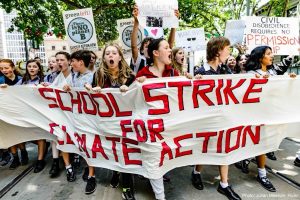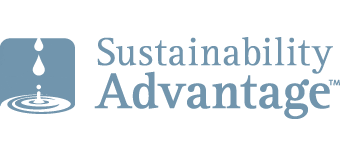7 Climate-Related Wake-Up Calls Are Fueling System Change
 “System change, not climate change” is the slogan for the global climate justice movement. It acknowledges that the socio-economic system that enabled our climate crisis must be transformed. A perfect storm of 7 climate-related wake-up calls are fueling system change.
“System change, not climate change” is the slogan for the global climate justice movement. It acknowledges that the socio-economic system that enabled our climate crisis must be transformed. A perfect storm of 7 climate-related wake-up calls are fueling system change.
Wake-up calls from scientists
For the last 28 years, the Intergovernmental Panel on Climate Change (IPCC) has produced dire reports about impending climate-related crises. Its “Global Warming of 1.5˚C” report last October finally got the world’s attention. It said that if we don’t limit global warming to 1.5°C above pre-industrial levels by 2100 ‒ the target set by the 2015 Paris Climate Agreement ‒ climate change is an existential threat to humanity. Are there any questions?
This month, the lesser known Intergovernmental Science-Policy Platform on Biodiversity and Ecosystem Services (IPBES) produced a report warning us that “one million animal and plant species are now facing extinction, many within decades, more than ever before in human history … we are eroding the very foundations of our economies, livelihoods, food security, health and quality of life worldwide.” Climate change is a contributing culprit.
One of those endangered species is us. Some of us are in business. This is getting personal for business leaders and their families.
Wake-up calls from climate-related disasters
In-your-face hurricanes, floods and forest fires, made more severe and frequent by climate change, have heightened attention to scientists’ warnings. Until recently, news coverage of these devastating events treated them as isolated incidents. Now, news reports are connecting their frequency and severity to climate change happening right now. When hundred-year storms happen every couple of years, something is wrong. Climate change is not a hoax. It’s for real, and it’s an emergency, as declared by the UK government this month.
News reports point to root causes of climate change. Often, they graphically show industrial pollution by carbon-intensive sectors. In the court of public opinion, companies are being held accountable for their damage. In the court of law, some of the biggest oil and gas companies are being sued by cities, states and children for knowingly abetting climate change. This is a cautionary tale for other large emitters and companies in their value chains.
Wake-up calls from economists
For the last 14 years, the World Economic Forum’s annual Global Risks reports have rated environmental and social factors as highest-impact / highest-likelihood threats to the global economy within the next ten years. The most impactful and most likely duo are extreme weather events and failure of climate change mitigation and adaptation.
These warnings are from the WEF, not the WWF. The business community tends to listen more attentively to economists than NGOs.
Wake-up calls from the finance community
Last year, the Task Force on Climate-related Financial Disclosures (TCFD) declared that bankers and insurers need to know how much companies are threatened by climate change and what they are doing about it. They ask companies to voluntarily disclose their climate-related risks, opportunities and financial impacts so that providers of capital can make better-informed decisions about whether the companies are good credit risks.
What interests bankers fascinates corporations. If bankers think action on climate change mitigation and adaptation is important, it’s important.
What if the above IPBES report leads to a TCFD sequel – a TBCD (Task Force on Biodiversity-related Financial Disclosures)? Should companies prepare for that, too?
Wake-up calls from investors
Each year, Larry Fink, CEO of BlackRock, sends a year-beginning letter to CEOs of companies with stock in BlackRock’s portfolio of $6 trillion of assets under management. In 2018, he had an unusual message: it’s time that companies had a social purpose. “Without a sense of purpose, no company, either public or private, can achieve its full potential. It will ultimately lose the license to operate from key stakeholders.” This year, his letter went further and stated that social purpose is the “animating force” for profits.
Like-minded investor organizations like Vanguard, State Street and CalSTRS, with another $15 trillion of assets under management, sent similar year-beginning guidance letters to CEOs of companies in their portfolios. They called on companies to reset their strategies to focus on long-term growth plans that include their interactions with society.
When investors encourage purpose-driven business models, companies listen.
Wake-up calls from the grassroots
There is a leadership paradox: Sometimes things need to get worse before they get better. Things are bad enough now for system change.
The chasm between the haves and the have nots has reached the breaking point. The richest 1% now own over 50% of the world’s wealth. That’s not sustainable. People are desperate to change the system that allowed this greed and injustice to happen. They grasp at straws and elect con artists like Donald Trump who promise them system change and then sell out to the highest bidders.
“Fool me once, shame on you: fool me twice, shame on me.” People are waking up to political frauds. They are ready for comprehensive system-transformative solutions that mitigate environmental, social and economic threats. Politicians supporting a wonderfully inclusive, comprehensive Green New Deal are being elected in the U.S. The Green New Deal Group intends to “detoxify the UK economy.” The Pact for a New Green Deal has just been announced in Canada. Fringe parties like the Greens are not so fringe any more. For the first time in Canada, they have official opposition status in a province and they just won a hotly contested federal by-election.
The political landscape is shifting. A groundswell of grass-root coalitions is demanding that politicians stand up for the needs of their constituents, not the interests of their deep-pocketed funders. We need to replace red tape with stronger green tape that protects our environmental and social nests. We need to back-up pledges with action. We’ve tried voluntary measures and they haven’t worked. It’s time we put ourselves on a war footing to combat the climate crisis.
Which brings us to the wild card wake-up call, the most exciting of the seven …
Wake-up calls from Greta and friends
“A little child shall lead them …” or at least point out that the emperor has no clothes. Greta Thunberg lit the match last year with her courageous series of solo Friday school strikes for real action by the Swedish government on climate change. Then she delivered direct, forceful messages to gatherings of the rich and powerful. That kindled a global brush fire of youth-led Fridays for Future, Youth Strikes for Climate, the Extinction Rebellion and other climate justice movements.
The “butterfly effect” says that that small things can have non-linear impacts on a complex system. Global society is a complex system. Greta is the butterfly. Her small gesture has caused a perfect storm of youth uprisings committed to protecting their future well being.
These youth groups cleverly coined the “System change, not climate change” slogan. They get it. The underlying cause of the climate crisis is the permissiveness of the current system that forgives pollution, ecosystem destruction and social injustice in the name of “progress” that obscenely enriches a few at the expense of the many.
These seven wake-up calls have brought us to a tipping point when a critical mass is demanding system change. It’s what Paul Hawken calls “blessed unrest,” and its unstoppable. The blueprints for a more just, equitable and restorative system will be diverse. Exactly what the Green New Deal system will look like in various jurisdictions will differ. It will certainly be climate change focused, while transforming the underlying socio-economic systems that intentionally permitted our climate to be destabilized in the first place.
Companies need to decide whether they will lead, follow, or get out of the way. Starting with action on climate change, companies must electrify everything, convert to low-impact renewable energy and do it in a way that contributes to an environmentally restorative, socially just and economically inclusive society. That’s the ante in the Green New Deal game. Then it gets more exciting.
Hang on. This could be a fun ride!
Please feel free to add your comments and questions using the “Leave a reply” comment box under the “Share this entry” social media symbols, below. For email subscribers, please click here to visit my site and provide feedback.




Comments are closed.